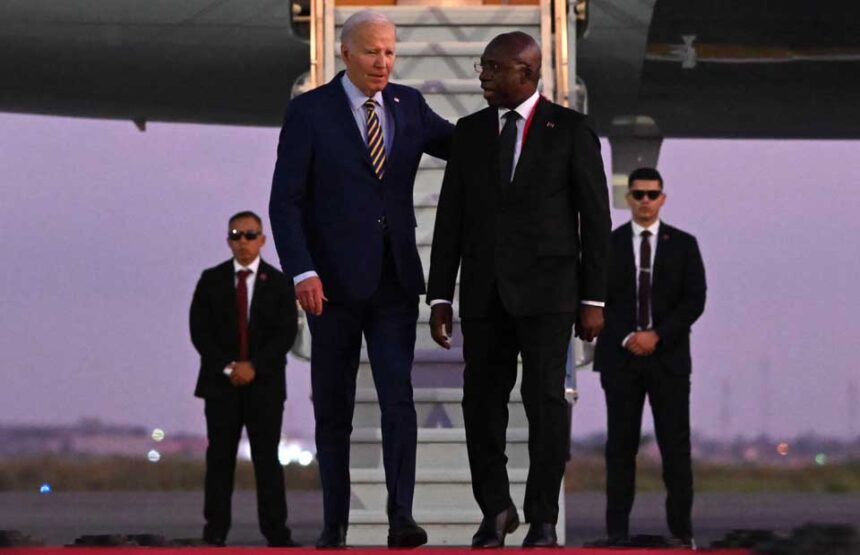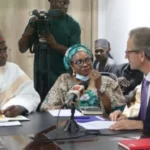President Joe Biden has announced over $1 billion in humanitarian assistance to Africa during a historic visit to Angola.
The aid aims to address food insecurity and the needs of refugees and displaced persons affected by droughts across 31 African nations.
Speaking at the National Slavery Museum near Luanda, Biden acknowledged the shared history between the U.S. and Africa, calling slavery “our nation’s original sin.” He emphasized the importance of addressing current challenges, stating, “The future runs through Angola, through Africa.”
This visit marks a turning point in U.S.-Angola relations, with Biden becoming the first U.S. president to visit the former Portuguese colony in an effort to counter China’s growing influence in the region.
- Advertisement -
Angolan President João Lourenço described the visit as an opportunity to enhance economic and security cooperation.
A focal point of the trip is the Lobito Corridor project, a U.S.-backed initiative to rehabilitate a railway connecting the Democratic Republic of Congo (DRC) and Zambia to Angola’s Lobito port.
This corridor is expected to facilitate the export of critical minerals and bolster regional trade. The project, funded by loans from the U.S., European Union, and other international partners, is positioned as an alternative to Chinese investments that have often led to unsustainable debt.
Biden’s administration has prioritized infrastructure development in Africa to foster economic growth and counter geopolitical influence from rivals like China. Angola currently owes $17 billion to China, approximately 40% of its total debt.
The visit also addressed Angola’s domestic challenges. Human rights organizations, including Amnesty International, urged Biden to press for accountability regarding alleged abuses by Angolan security forces and advocate for the release of detained government critics.
- Advertisement -
Biden’s trip will continue in Lobito, where he will attend an infrastructure summit alongside leaders from Angola, the DRC, Tanzania, and Zambia. The summit aims to advance regional development and explore sustainable investment strategies.










